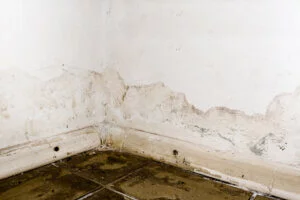Housing and Social Care
Housing Solicitors and Community Care Lawyers London
Experiencing problems when it comes to your home and welfare can have a devastating effect on your life and the lives of your family. Read on to find out how our specialist housing and community lawyers can help you. Find out about their experience and hear from clients they have already assisted.
Expert housing and community care lawyers fighting for you
Osbornes Law has one of the largest and most specialised Housing and Social Care legal teams in London. The department is made up of some of the most experienced and outstanding housing solicitors in their field who undertake cases involving housing, disrepair, community care issues and also welfare benefits.
Why choose Osbornes Law for housing solicitors and social care issues:
- You will be represented by a member of the Housing and Social Care department, which has been recognised and recommended by the independent legal directories the Legal 500 and Chambers UK.
- Throughout your matter you will deal with the same legal team who will keep you updated on the progress of your case and any decisions made.
- Our impressive track record and reputation in providing advice in housing, housing disrepair, community care, public law and welfare benefits to the most vulnerable members of the community, including those who suffer from mental health issues, the disabled, the elderly, and those with language difficulties.
- Our housing lawyers have expertise in dealing with Housing matters such as defending possession proceedings, warrants for eviction, homelessness, challenging suitability of accommodation, unlawful evictions, housing disrepair and many other issues
- Our team’s knowledge and skill in conducting Community Care cases such as challenging Care Act assessments, Children’s Act needs assessments, care leaver status, age assessments by local authorities, adaptations to the home, and Judicial Review proceedings amongst many others
Will is the best housing solicitor there is and he has the best housing law mind I have come across. He is really exceptional and incredibly helpful for both clients and people in the sector.
They are extremely good and diligent in their work - they are super amazing.
The lawyers at Osbornes Law work with passion, putting in all their best.
Osbornes has some very good quality lawyers doing very interesting work.
Osbornes have a strong team with some truly excellent individuals.
They are tenacious, approachable, and extremely effective in representing the interests of their clients including in highly complex cases.
Osbornes Law are a truly excellent team. They cover a range of immigration, housing, and social care matters with a core commitment to representing vulnerable clients.
Osbornes has a particular strength in handling social housing challenges with a focus on homelessness and assisting children with disabilities.
William Ford has a forensic knowledge of housing law and is extremely intelligent, very thorough, and excellent with clients
Excellent communication at all stages of a claim and an emphasis on the needs of the client.
A thoroughly professional firm who have specialist knowledge of their areas of law.
Outstanding lawyers providing outstanding quality advice. They are one of the leaders in the field.
Alex McMahon is an extremely safe pair of hands for any housing issues.
William Ford has long been a leading individual in the housing law world.
Osbornes' social housing law team is very good and very well regarded within the field, with great solicitors across the full range of seniority.
The housing team at Osbornes is the best in England.
Alex McMahon is another notable team member who practices across housing law, public law, and community care.
Practice head William Ford is praised as ‘the best housing and social security lawyer in the sector.
The social housing team at Osbornes boasts extensive experience in representing clients with claims against local authorities and housing associations in mandates surrounding disrepair, possession, eviction warrants and illegal evictions, homelessness, and anti-social behaviour.
Excellent work as usual Team Osbornes Law. Our service users have experienced some of the exceptional outcomes yourselves have achieved as outcomes for their housing and social issues.
Keep up the excellent work.
Osbornes Law represents tenants in the full variety of housing law matters,
Osbornes Law are a very highly regarded firm who are at the coalface. They are very on top of their cases.
The Osbornes team is capable and responsive.
William Ford is the best housing and public law solicitor of his generation.
Osbornes are a fantastic team who really stand out in the market in the fields of housing and social care.
Their mix of private client work and legal aid means that legally aided clients are (unusually) able to access a professional and top-flight law firm and get treated with real respect
The social housing team at Osbornes is exceptional. The solicitors are highly competent, professional, and committed.
A large, experienced, and capable team with in-depth knowledge covering the entirety of housing and homelessness law
The group has developed expertise in several specialist areas, such as advising EU nationals on their legal status and bringing challenges in asylum age assessment cases.
The team has demonstrable experience in advising clients on issues involving vulnerable clients who have claims against local authorities and housing associations.
"The team explains things clearly, is very responsive and goes the extra step to help those who need it."
"I was impressed and grateful from the very beginning - the team are extremely detailed, very thorough, helpful and reassuring at the same time. I would absolutely recommend Osbornes Law."
"Osbornes Law is efficient and focused, and clearly prioritises the client's interests."
‘Osbornes are very approachable; in a time where many firms are unwilling to take on cases that do not look promising, they are prepared to look at difficult situations and find a way to assist their clients.
"Osbornes is one of the firms that I consistently recommend. Excellent service, and thorough and knowledgable lawyers."
‘From the very first moment, I was aware and grateful to have been put in touch with Osbornes. The expertise, advice, leaving no stone unturned right from the first minute until the very last, I would most certainly recommend every single time.’
"The associates have a thorough knowledge of the area of law, communicate effectively and are incredibly easy to work with."
"They are a firm that likes a challenge and are prepared to do the groundwork to develop cases, even if it means much preparation without remuneration."
"It is clear the firm put the interests of the client first at all times."
"There’s a real sense of team ethic. It’s clear that internal communication and case recording are strong because if a solicitor handling a case is away the person covering is fully up to speed, has the necessary documents available to them and nothing falls through the cracks."
"If a short deadline comes up on an urgent case, solicitors are active in collaborating to ensure it can be met."
"The practice is ‘undoubtedly one of the best in the business‘ and has a strong reputation for complex disrepair cases and possession claims against local authorities and housing associations."
Very strong team – incredibly knowledgable with good cross-over knowledge in mental capacity and community care. Thorough, dedicated and very professional. Clients will feel they are getting a gold standard service.
"Osbornes are an exceptional team. They have a wealth of housing experience and knowledge that is ‘top notch’. Clients are safe in their hands. As colleagues, they have a fantastic working relationship with each other and, feeding off of each other’s expert knowledge, their solicitors work to ensure that no stone is unturned."
"The team at Osbornes is inspired by its leader Will Ford, a truly first-rate, modern lawyer’s lawyer. The team have blossomed under his Will and are now packed with conscientious, dedicated and excellent lawyers who always give their clients 100%."
"Alex McMahon – thorough and committed. Very easy to work with."
"William Ford - A good technical lawyer with a strong commitment to his clients"
"A committed and well-organised team with a good knowledge of the law and who work hard to secure a good outcome for their clients"
"Osbornes has an impressive social housing team and the quality of their work that I have seen is very high. Will Ford is a very well-regarded figure in the housing law world and leads a team of high quality and committed lawyers."
"Osbornes provide an incredibly high-quality service to their clients. The firm treats its legal aid clients with the same respect and commitment as if they were important private clients, which is rare and admirable. Their housing solicitors are also highly skilled and knowledgable."
"He goes the extra mile for his clients."
"He is an excellent lawyer with exceptional attention to detail. He leaves no stone unturned in finding the right solution for his clients."
"This is an outstanding firm with great attention to detail. They work tirelessly to achieve the best possible outcome for their clients. They have excellent client care skills and are extremely organised."
“Osbornes has an impressive social housing team and the quality of their work that I have seen is very high. Will Ford is a very well-regarded figure in the housing law world and leads a team of high quality and committed lawyers. The existence of family and property law teams at the firm, amongst others, means that they are able to offer a holistic and expert approach to their clients.”
William Ford is "highly committed to his clients and leaves no stone unturned in seeking to assist them with their problems"
William Ford "is an astute litigator, and his breadth of knowledge allows him to take a holistic approach to clients’ situations."
"They are at the forefront of legal developments in the field of social housing and community care. They are committed to using their multidisciplinary expertise to achieve the best possible outcomes for clients."
"This a great team - the quality of their work is amazing and they are very professional"
"An exceptional outfit. They take on difficult cases, fight hard and win."
"William Ford frequently represents tenants in possession proceedings, homelessness appeals and disrepair claims... and is praised for his dynamic and hard-working approach."
"Osbornes team is noted for cross-practice expertise in areas such as housing and community care, which it brings to bear in disrepair, possession and homelessness cases involving vulnerable adults, individuals with language difficulties, the elderly and those with no recourse to public funds."
"The absolutely brilliant William Ford."
I was very happy with the excellent service from Osbornes in my disrepair case. They obtained a great result in my case and always pushed hard for my rights.
The social housing team is friendly, approachable and genuinely care about its clients.
A broad knowledge places the social housing department one step ahead of others when it comes to community care knowledge.
The social housing department always go the extra mile.
The social housing team has a strong track record in representing tenants in claims against local authorities and housing associations, with particular expertise in complex disrepair and possession cases.
The social housing department provides an excellent service and is able to react quickly in critical situations.
Thanks for all your support during this very difficult time for my family.
William Ford receives effusive praise for his dedication and commitment to social housing. Interviewees highlight his technical understanding and background in housing law, and describe him as highly impressive."
The team understand vulnerable clients and young people, and on the front line they are prompt and efficient.
Edward Taylor undertook my case from an almost unwinnable position. From our first meeting, Edward's enthusiasm was apparent. He was determined, diligent and most professional when dealing with my case, keeping me informed at every stage. I wholeheartedly thank Edward for his endeavours and would not hesitate in recommending him and Osbornes Solicitors to others.
Osbornes Solicitors give us the confidence and strength to continue and input the belief that the case would turn in our favour … What was most important was the transparency in communication that Osbornes provided.
Osbornes Solicitors are the pinnacle of professionalism and have gone beyond to assist with this case … I felt that I wasn't only dealing with just one dedicated solicitor but I had a good knowledgeable team behind me at all times.
I have been extremely impressed with the level of patience and guidance provided in the case … I would like to thank you for your sympathetic approach and understanding towards my mother’s case and I would strongly recommend Osbornes Solicitors to anybody.
'First-class lawyer' William Ford is 'completely dedicated to making a positive difference', and is acting in cases challenging the 'bedroom tax'.
Osbornes is commended for its 'rare level of commitment'.
William acts on possession, disrepair and homelessness cases, and has particular expertise in the protection of tenancy deposits under the Housing Act 2004
Our housing lawyers have particular expertise in:
- Helping individuals and families who are experiencing housing problems with their local authority.
- Acting for housing association tenants, leaseholders, private tenants and the homeless to resolve all manner of housing issues.
We are proud to be able to assist people with a wide range of needs, circumstances and from all backgrounds. Our aim – to achieve the best possible results for our clients.
Our housing solicitors have gained a reputation for being among the leading specialists in challenging age assessments of asylum seeking children, as well as challenging the lawfulness of local authority’s housing and community care policies.
Our specialist housing solicitors also undertake challenges to Care Assessments, for both young people and adults, undertaken by the local authority and also securing assessments where the local authority has failed to carry out one according to their duties.
The team is highly successful in making Judicial Review applications across these areas in order to get results for our clients, with a fantastic track record of success leading to a number of reported cases.
We are able to pursue Judicial Review proceedings in a wide range of cases under our Public Law legal aid contract.
How will my case be dealt when I contact Osbornes Law?
You can submit details of your query using the following online enquiry form.
Your query will then be considered by our team. We will do our best to get back to you on the same or next working day, to let you know if someone in our team is able to take on your case. We might need to contact you to ask for some more information before we can confirm this.
We will assess whether your case falls within our areas of expertise, the legal merits of your case, and the capacity of our lawyers to take on your matter.
If you require legal aid, please be aware that there is a shortage of lawyers who work in the areas covered by legal aid and we have a very high demand for these services. Whilst we aim to get back to everyone, if we have not been able to reach you within 7 days this means that unfortunately the solicitors who deal with this type of work are not currently able to take on new cases, due to their existing caseload. Wherever possible we will signpost you to alternative providers who can assist.
Housing and Community Care InsightsVIEW ALL
- 30.5.2025
Asylum-Seeking Child Wins Age Dispute Court Case Against...
Vulnerable unaccompanied asylum-seeking child vindicated in relation to his age following four day hearing in damming judgment against Local Authority...
Read more - 30.4.2025
Torbay Council Fined £8,400 for Failing Child’s Needs
Torbay Council ordered to pay £8,400 for year-long neglect of child’s needs The Local Government & Social Care Ombudsman has...
Read more - 24.4.2025
Age Re-Assessment Ordered by High Court
‘Illogical’ and ‘unlawful’: High Court rules in favour of unaccompanied asylum-seeker against Local Authority On 16 April 2025, His Honour Judge Dight...
Read more - 2.4.2025
Significant Damages Secured in Disrepair Case
Significant Damages for Disrepair secured following breach of Court Order Our client approached Osbornes Law having previously brought a disrepair...
Read more - 6.3.2025
Housing Cases: When Vulnerability Affects Capacity
When does vulnerability become an issue of capacity in housing cases? Things to consider Many clients seeking housing advice from...
Read more - 30.1.2025
Osbornes Wins Judicial Review on Legal Aid Fees
Osbornes successful in judicial review of Lord Chancellor over legal aid fees for Welfare Benefits On 28 January 2025 the High Court...
Read more - 13.1.2025
Osbornes Law Secures Mental Health Support for Asylum...
Home office backs down over decision to deny mental health support to suicidal torture victim seeking asylum The Home Office...
Read more - 7.11.2024
New DWP Scheme: Refunds for Recoverable Hardship Payments
Sanctioned Universal Credit claimants may be entitled to refunds of Hardship Payments following announcement of new DWP scheme The Department...
Read more - 7.10.2024
Disabled Woman Wins £34,000 Benefits Case
The Background to the Case In 2019 Ramona Cerbu was crossing the road when she was hit by a car and...
Read more - 2.9.2024
Transferring a Council House Tenancy to a Family...
Tenancy Succession Rules The loss of a loved one is always a difficult time. It is important that time is...
Read more - 30.7.2024
Single Mother Wins in High Court Homelessness Challenge
Claim for judicial review against Redbridge Council This case involved a claim in the High Court for judicial review against...
Read more - 15.7.2024
How To Deal With Rent Arrears
What can I do if I am struggling to pay off rent arrears? There are many reasons why one might...
Read more - 16.4.2024
When can you challenge public body decisions about...
An introduction to public law Public law governs the relationship between public bodies, such as central government or local government,...
Read more - 16.4.2024
Short-Form Assessments of Unaccompanied Asylum-Seeking Children
Age is just a number? Shining a light on Local Authorities’ Short-Form Assessments of Unaccompanied Asylum-Seeking Children A recent report...
Read more - 5.4.2024
DWP Exposed for £32,000 Underpayment of Disability Benefits
Osbornes Law has assisted a vulnerable client to recover underpaid disability benefits totalling over £32,000. Our client, a disabled young man,...
Read more - 23.1.2024
Case Reiterates Local Authorities should follow Allocation Scheme
R (on the application of Kukhtyak) -v- London Borough of Hounslow [2023] EWHC 2914 (Admin) This sad case concerned an elderly couple...
Read more - 7.12.2023
Supreme Court sets High Threshold for Local Authorities...
Judgment was handed down on 28 November 2023 by the Supreme Court in an important case regarding the main housing duty. The...
Read more - 28.9.2023
Gatekept homeless teenager accommodated by local housing authority
Miss X, a 17 year old whose details are anonymised to protect her privacy, left her family home in March 2022 following...
Read more - 28.9.2023
Homelessness case successfully settled for elderly disabled lady
Ms X, whose details are anonymised to protect her privacy, had been living in a privately rented one-bedroom flat for...
Read more - 28.9.2023
Disrepair Claim for Single Father
Background to the Claim Osbornes Law represented a private tenant, a single father living with his young son in their...
Read more - 28.9.2023
Client successfully rehoused following refusal by local authority
Background to the case Osbornes Law represented a client who had been found intentionally homeless by his local authority. He...
Read more - 28.9.2023
Client rehoused and £16,000 arrears cleared
Osbornes Law were instructed to assist a client to suspend a warrant for possession. The client had fallen into arrears...
Read more - 26.9.2023
Victory for Homeless Victim
Mr X, whose details are anonymised to protect his privacy, fled his home country due to severe persecution from the...
Read more - 13.9.2023
Successful homelessness judicial review case against Redbridge Council
This matter involved a claim in the High Court for judicial review against Redbridge Council for failure to comply with...
Read more
Funding
The department has legal aid contracts in Housing, Community Care, Welfare Benefits and Public Law, and is able to offer advice to those clients who qualify for Legal Aid where it is available. We also offer clients alternative funding methods for those who do not qualify for public funding at competitive rates.
In cases of Housing Disrepair we assess each matter on a case by case basis and in some instances may be able to offer a Conditional Fee Agreement (CFA) or “No Win No Fee” where it is considered appropriate to do so.
Since April 2013 public funding is no longer available for welfare benefit appeals before the First Tier Tribunal. We may be able to offer advice on a private fee paying basis in relation to welfare benefits appeals.
However, we are able to assist with welfare benefits appeals to the Upper Tribunal under the terms of our legal aid contract, assuming you meet the legal aid eligibility criteria, and we are able to take on your case. To speak with us on a confidential basis about your housing and social care issue contact us now by telephone or by filling in our online enquiry form




























